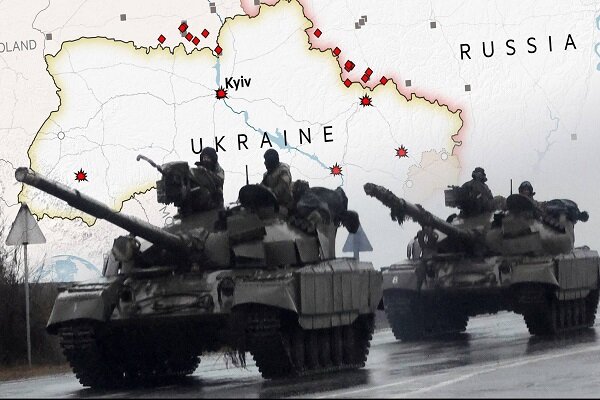Despite the successful attacks of Russia in the first few months of the war, the continuous and intense arming of Ukraine by the West has caused a change in the balance of the war. The result of such a change is visible to anyone who follows the news of the war. Currently, the Russian army is gradually experiencing erosion conditions. In contrast, Ukraine is reclaiming lands that can boost the morale of the soldiers, the nation, and even the people of Western Europe. However, what the battlefield has created is not only limited to the operations and victories and defeats within them and a significant part of the recent results of the war is related to accusations. The arena of conflict between Moscow and Kiev has created a longer wave of accusations against each other than in the past one or two months. Accusations, whether right or wrong, with the aim of persuading and giving direction to the domestic and global public opinion of the conflict, putting pressure on or involving as many third countries as possible in the war. Finally, it must be accepted that regardless of the result of this symmetrical policy on the part of Russia and Ukraine, the result of the accusations raised in the war is an increase in violence.
Since the beginning of the war, President Zelensky has been continuously facing Moscow with various accusations. The discovery of mass graves of Ukrainians and the attack on civilian areas can be considered as the most traditional, and the claim of Russia’s use of Iranian drones and the use of former Afghan special forces are Zelensky’s latest accusations against Russia.
In contrast, Russia has also changed its manner; the Russians also make different accusations against the West. Accusing Ukrainian forces and their commanders of war crimes, as well as requesting an international court with the support of Bolivia, Iran and Syria, accusing Britain in the explosion related to the Nord Stream pipeline and poisoning its own soldiers, are major part of Moscow’s activities on the front ‘accuse and deny’.
There is no doubt that verifying the authenticity of such accusations is very important. But surely the public opinion will have their own acceptable perception of their respective sources and then they will put pressure on their governments. This is where the parties involved in the war try to implement their objectives through their narratives.
As already mentioned, President Zelensky’s task is clear. Accusations are made by him so that the image of the war will continue to be displayed in the world, and by influencing the public opinion, the governments will also be affected by it and provide more support to Kiev. Zelensky has taken advantage of this issue and remembers how the support of celebrities and the media hurt the public opinion of the world so much that even the most conservative countries of Western Europe were forced to support Ukraine.
Now that, according to some media reports, Biden is going crazy with ingratitude and asking for more help from Zelensky, and while Kiev knows that the support of the Congress, especially the Republicans, for the support of Ukraine is gradually fading, a greater and renewed focus on public opinion can partially be a facilitator.
On the other hand, President Putin is under the pressure of Russia’s recent results on the battlefield. Some of Russia’s accusations are presented to some extent in order to influence the internal public opinion of that country. For example, Foreign Minister Lavrov has accused the United States of adopting a Hitlerian and racist approach against the Russian people. In addition to domestic expenses, some accusations are also directly related to Moscow’s recent failures last month.
Most likely, the Kremlin will increase the intensity of the war in any way to change the balance of power in the war again in favor of Russia. This is why by accusing the other side of all kinds of war crimes, shelling civilians, using dirty bombs, it will make the public opinion to accept the severity of war.
Finally, accusing each other of endless cases in an all-out war does not look strange. What should be clarified is the truth of such accusations, which can lead to legal and human responsibilities for the parties, but what should be carefully examined are the present and future clear and hidden goals of the parties in this defamation battle. It should be noted that the spread of violence and the scope of the war and the casualties of the military and the civilians in a campaign of denial, counter-accusation and removal of responsibility will be probable.










0 Comments